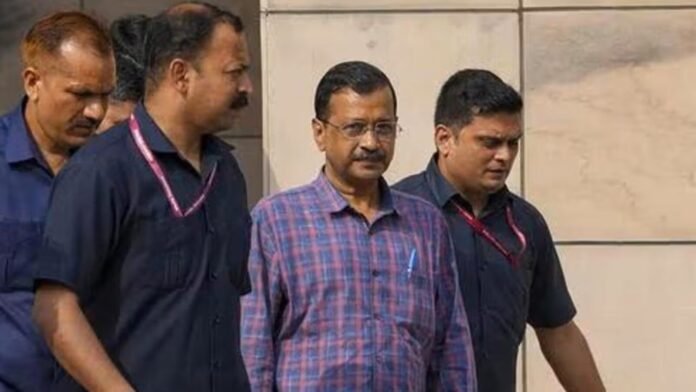Delhi court recently dismissed an application filed by Chief Minister Arvind Kejriwal, seeking to increase the number of legal meetings allowed between lawyers and their clients. The decision, handed down on [date], has stirred debate and raised important questions about access to justice and the rights of defendants in the Indian legal system.
The application, filed by Arvind Kejriwal’s legal team, sought permission for an increase in the number of meetings between him and his lawyers, citing the complexities of the case and the need for adequate legal counsel. Kejriwal is facing multiple legal challenges, including defamation suits and criminal cases, making effective communication with his legal representatives crucial for his defense.
However, the Delhi court, while acknowledging the importance of legal representation, ruled against the application, citing procedural constraints and existing regulations governing legal meetings in prison. The decision has sparked controversy, with some arguing that it undermines the fundamental right to a fair trial and adequate legal assistance, while others contend that it upholds the rule of law and prevents potential abuses of the legal process.
At the heart of the matter lies the balance between the rights of the accused and the practical considerations of managing legal proceedings within the confines of the judicial system. While defendants have a constitutional right to legal counsel and fair trial, the administration of justice requires adherence to established procedures and regulations to ensure the integrity of the legal process.
Arvind Kejriwal’s case is emblematic of the challenges faced by high-profile individuals entangled in legal battles, where the demands of the case often clash with logistical constraints and bureaucratic protocols. The dismissal of his application sheds light on the intricacies of navigating the legal system, where even the most powerful figures are subject to the rules and regulations governing judicial proceedings.
Critics of the court’s decision argue that limiting the number of legal meetings infringes upon the defendant’s right to prepare a robust defense and effectively communicate with their legal team. In cases involving complex legal issues and voluminous evidence, adequate time and access to legal counsel are essential for ensuring a fair trial and upholding the principles of justice.
Furthermore, proponents of increasing legal meetings contend that restricting access to legal counsel can have adverse consequences, including the potential for miscarriages of justice and violations of human rights. In a system where the presumption of innocence is paramount, any impediment to effective legal representation undermines the integrity of the judicial process and erodes public trust in the legal system.
However, defenders of the court’s decision argue that procedural rules and regulations are necessary to maintain order and efficiency in the administration of justice. Allowing unlimited legal meetings could open the door to abuse, with defendants potentially exploiting the system to delay proceedings or manipulate evidence. By imposing restrictions on legal meetings, the court aims to strike a balance between the rights of the accused and the interests of justice.
Moreover, the dismissal of Arvind Kejriwal’s application underscores the broader challenges facing the Indian legal system, including issues of backlog, resource constraints, and institutional reforms. As the backlog of cases continues to mount and the demand for legal services grows, there is an urgent need for systemic reforms to improve access to justice and streamline legal proceedings.
In addition, the Delhi court’s decision to dismiss Arvind Kejriwal’s application seeking to increase legal meetings raises important questions about the balance between the rights of the accused and the practical considerations of administering justice. While defendants have a constitutional right to legal counsel and fair trial, procedural rules and regulations play a crucial role in maintaining order and efficiency in the legal system. Moving forward, there is a pressing need for systemic reforms to address the challenges facing the Indian legal system and ensure that justice is accessible to all.

